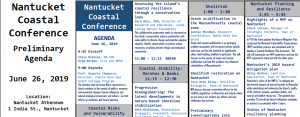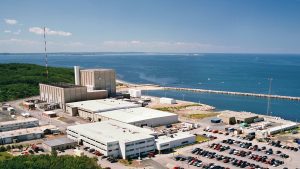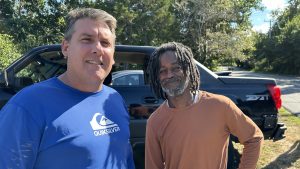Search results for: Психолог онлайн 2021 Психолог online Психолог в онлайне психологов онлайн Психологи Online insta---batmanapollo
Nantucket Coastal Conference Agenda Available
The preliminary agenda for the June 26, 2019 Nantucket Coastal Conference is now online. Join experts, regulators, consultants, researchers, and partners from across the region to discuss a range of critical issues such as coastal resilience, sea level rise, ocean acidification, water quality, storm flooding and erosion. » Agenda and Registration
Read MoreOysters
Oyster Aquaculture Overview Oysters provide benefits to the ecosystem, human health, the Blue Economy. Shellfish act as natural water purifiers by filtering and removing pollutants from the sea. They contain high-quality protein and other essential nutrients and are an important part of a healthful diet. In 2021, a total of 398 aquaculture growers cultivated 1352.3…
Read MoreProposed Wastewater Release into Cape Cod Bay Likely to Remain in Bay for at Least One Month, Study Finds
Woods Hole, Mass. (Dec. 4, 2024) — Scientists at the Woods Hole Oceanographic Institution (WHOI) investigating the pathways of the proposed wastewater discharge from the Pilgrim Nuclear Power Station (PNPS) find it has a high probability of remaining in Cape Cod Bay for at least one month after release. Their findings are based on a…
Read MoreWHOI-R-05-002 Wilson, J.Y. Characterization o
WHOI-R-05-002 Wilson, J.Y. Characterization o
Read MoreAquaculture Curricula Resource Guide: A Resource Tool for the Aquaculture Educator
Aquaculture Curricula Resource Guide: A Resource Tool for the Aquaculture Educator Available on loan from the National Sea Grant Library or online: http://www.state.ma.us/dfa/aquaculture/education.htm (look for “Curricula Guide”) Soares, S.J., J.K. Buttner, and D.F. Leavitt NRAC Publication No. 01-001, 54 pp., 2001 WHOI-E-01-003
Read MoreFederal Crop Insurance for Massachusetts Quahog Farmers
Federal Crop Insurance for Massachusetts Quahog Farmers Helpful to educators and students Leavitt, D.F. Focal Points, 2 pp., 1999 WHOI-G-99-001 Also available online: click here
Read MoreClam Tents: A New Approach to Soft-Shell Clam Culture and Management
Clam Tents: A New Approach to Soft-Shell Clam Culture and Management Helpful to educators and students Leavitt, D.F. Marine Extension Bulletin, 4 pp., 1998 WHOI-G-98-006 Also available online: click here
Read MoreTheme Booklet: Environmental Technologies
Theme Booklet: Environmental Technologies WHOI Sea Grant 4 pp., 2000 WHOI-G-00-006 Also available online: click here Learn more of WHOI Sea Grant’s investment in environmental technologies which has resulted in the development of new tools for analyzing and interpreting the effects of toxic chemicals on the reproduction, development, and disease defenses in marine animals and…
Read More#NOAALive4Kids kiʻi pōhaku (petroglyphs)
NOAA Live! kiʻi pōhaku (petroglyphs) During the #NOAALive4Kids webinar “Stories in the Stone: Archaeology in Papahānaumokuākea Marine National Monument”, educator and archaeologist Malia Evans showed you how to design and make kiʻi pōhaku (petroglyphs) that represent you, your family, or your community. Here are some that were shared with us. To view the webinar that…
Read MoreCultivating the Future of Shellfish Farming
On a perfect mid-August afternoon, Todd Gelinas and Adrian Wallace motor their work skiff back to a small beach at the end of Tonset Road in Orleans. Newly-minted business partners, they are returning from tending oysters at Stony Island Farm …
Read More


